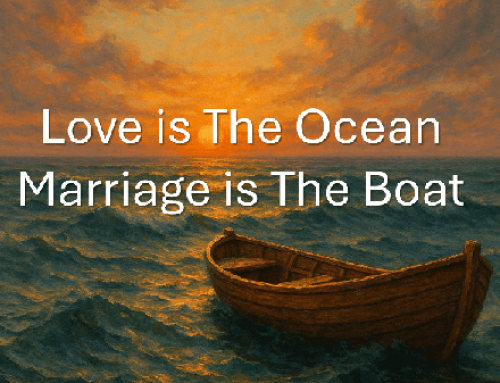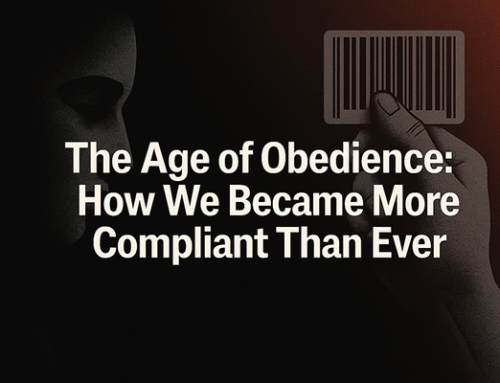💡 TL;DR:
Most philosophers were brilliant… but miserable.
Jung taught us to embrace our shadow. Lao Tzu showed us how to flow.
But if you’re still not free, Osho is the fire that shocks you awake.
Together, they offer not salvation—but something better:
A vivid, feral, whole life—lived fully, not perfectly.
🙄 The Problem With Most “Wisdom”
We all want less stress, more ease, and maybe a bit of inner peace. But here’s the kicker:
Most famous thinkers didn’t live like that.
They were either:
🔥 Too Intense
- Nietzsche – Went mad trying to outthink God
- Heraclitus – Died covered in dung after claiming “war is father of all”
❄️ Too Cold
- Stoics & Buddha – Mastered detachment but sometimes forgot joy
- Marcus Aurelius – Wrote Meditations… while slaughtering Germanic tribes
☠️ Too Negative
- Machiavelli & Freud – Didn’t trust anyone—not even themselves
- Schopenhauer – Called life “suffering” and threw parties just to complain
🌈 Too Positive
- Marx – Promised a classless paradise… while his own children starved, and his ideology fueled history’s bloodiest regimes
- Plato – Designed a “perfect republic” ruled by philosopher-kings… then was sold into slavery by his own student
What about the rest of us?
You know—folks dealing with expenses, raising kids, overflowing emails, and those random midnight snack urges?
After studying the lives and teachings of history’s greatest minds, two stand above the rest:
- Carl Jung – The psychologist who taught us to befriend our dark side
- Lao Tzu – The mystic who preached effortless living
Why them? Because they lived long, died peacefully, and left behind wisdom that actually works—not just for monks or warriors, but for everyday people.
Let’s meet the Minds That Shaped Thought—and see why Jung and Lao Tzu rise above.
The Thinkers of History: Who They Were and Why They Matter
Marcus Aurelius (Stoicism) – The Disciplined Emperor
- Lived: 121–180 AD (59 years)
- Peace with life? Mixed. He ruled Rome through wars and plagues, using Stoicism to stay composed—but his personal writings (Meditations) reveal a man constantly battling despair.
- Problem for Laypeople: Stoicism demands extreme self-denial. Most of us can’t (and shouldn’t) suppress emotions like a soldier.
Friedrich Nietzsche (Will to Power) – The Tormented Genius
- Lived: 1844–1900 (55 years)
- Peace with life? No. Plagued by illness, loneliness, and eventual insanity, spent his final years as a silent puppet, controlled by his sister.
- Problem for Laypeople: His call to “smash morality” is thrilling—but living in constant rebellion is exhausting. Most people just want stability.
Buddha (Enlightenment) – The Awakened Prince
- Lived: ~563–483 BCE (80 years)
- Peace with life? Yes, after enlightenment. Abandoned luxury, endured extreme asceticism, then found the Middle Way. Taught for 45 years before dying.
- Problem for Laypeople: Letting go of all desire is near-impossible for those with mortgages, families, and Netflix subscriptions.
Lao Tzu (Taoism) – The Mystic Who Vanished
- Lived: Mythical (tradition says 160+ years)
- Peace with life? Legendarily yes. Wrote the Tao Te Ching, then rode into the mountains, embodying effortless flow (Wu Wei).
- Why He Works: No dogma, no struggle—just adaptation. The ultimate “go with the flow” sage.
Confucius (Virtue Ethics) – The Moral Teacher
- Lived: 551–479 BCE (72 years)
- Peace with life? No. Failed to reform corrupt rulers, exiled, saw disciples die before him. Died believing history would vindicate him (it did).
- Problem for Laypeople: His rigid hierarchy and rituals feel outdated in modern individualism.
Chanakya (Realpolitik) – The Ruthless Strategist
- Lived: ~350–275 BCE (75 years)
- Peace with life? Probably. Mastermind behind India’s Mauryan Empire, wrote the cutthroat Arthashastra. Legend says he starved himself to death on principle.
- Problem for Laypeople: “Win at all costs” might work for politicians—but it’s a miserable way to live.
Niccolò Machiavelli (Power Politics) – The Cynic’s Cynic
- Lived: 1469–1527 (58 years)
- Peace with life? No. Wrote The Prince to regain power… only to be tortured, exiled, and buried in an unmarked pauper’s grave.
- Problem for Laypeople: Seeing everyone as selfish makes trust impossible.
Carl Jung (Depth Psychology) – The Shadow Integrator
- Lived: 1875–1961 (85 years)
- Peace with life? Yes, after midlife crisis. Confronted his own madness (The Red Book), emerged with shadow work—a way to turn flaws into wisdom.
- Why He Works: He proves self-awareness = freedom.
Sigmund Freud (Psychoanalysis) – The Dark Realist
- Lived: 1856–1939 (83 years)
- Peace with life? No. Fled Nazis, addicted to cigars (30+ tumors), euthanized by morphine.
- Problem for Laypeople: Reducing everything to sex and trauma is exhausting.
Why Jung & Lao Tzu Are the Best for Modern Life
🌗 1. They’re Balanced (No Extremes) and they don’t require you to leave real life.
- You don’t need to renounce the world (like Buddha),
- or live under rigid codes (like Stoics or Confucians),
- or tear everything down (like Nietzsche or Marx).
Jung had a house, patients, family, dreams, and midlife crises. Lao Tzu simply rode off—not in rebellion, but in peace. Their wisdom doesn’t pull you away from the world—it helps you stay in it without being crushed.
Jung and Lao Tzu? They offer balance without burnout.
- Jung: “Don’t suppress your dark side—understand it.”
- Lao Tzu: “Don’t force life—flow with it.”
They teach emotional integration, not denial. Soft power, not moral pressure. You don’t need to be a saint or a rebel—just real.
🌿 2. They Lived Well (Long & Fulfilled)
Philosophy means nothing if it doesn’t lead to a good life.
- Jung lived to 85 with family, purpose, creativity, and deep inner work.
- Lao Tzu lived (according to legend) over a century, and left this world peacefully—no drama, no dogma.
Their teachings worked—not just in theory, but in life. That’s rare.
🛠️ 3. Their Advice Works in Real Life
This isn’t abstract metaphysics. It’s plug-and-play wisdom for everyday peace.
-
Jung’s Shadow Work
→ Journal. Reflect. Admit your flaws.
→ Stop blaming others—see your role in the pattern.
→ Result: less self-sabotage, more wholeness.Lao Tzu’s Wu Wei
→ When stressed, ask: “Am I trying too hard?”
→ Let go of rigid plans. Trust the process.
→ Result: more ease, less friction, clearer choices.
They don’t promise you’ll escape suffering—but you’ll suffer less needlessly.
- Jung gives you a mirror: the shadow, the archetypes, the inner child. Instead of saying “be good,” he says “know yourself—even the ugly bits.” That’s real empowerment.
- Lao Tzu gives you flow: Wu Wei isn’t laziness—it’s intuitive action without inner friction. In a hyper-optimized, burnout-prone culture, that’s revolutionary.
🎭 4. They’re Not Preachy
No “suffer in silence” (Stoicism).
No “burn it all down” (Nietzsche).
No guilt. No rules. No gurus.
Just two quiet voices saying:
Jung: “The shadow is your inner clown.”
Lao Tzu: “The sage is a fool who gets the joke.”
Their message: Lighten up. Life isn’t a test. It’s a dance. They don’t reduce you to biology (Freud), logic (Socrates), or roles (Confucius). They invite you to be a mystery—and to hold that mystery lightly. In a time when identity, meaning, and certainty are constantly shifting, they’re mentors for the multitudes within you.
🕊️ 5. Their wisdom is healing, not punishing.
- Jung: “The privilege of a lifetime is to become who you truly are.”
- Lao Tzu: “Stop thinking, and end your problems.”
There’s no guilt trip. No moral perfection. No political utopia to chase. Just an inner invitation: Know yourself. Be gentle. Let go.
But Aren’t There Other Balanced Mentors?
Yes—Socrates’ relentless questioning taught us how to think, not what to think. Rumi embraced contradiction with divine poetry, dancing between ecstasy and grief. Thoreau modeled civil disobedience through simplicity and solitude. Viktor Frankl found meaning in horror, proving the soul can choose its response even in a concentration camp. Miyamoto Musashi balanced sword and spirit, embodying discipline without rigidity. Rabindranath Tagore offered lyrical humanism that married East and West. Alan Watts translated Zen into laughter and clarity. Toni Morrison revealed psychological truth through myth and memory. Albert Camus embraced absurdity without despair. J. Krishnamurti shattered dogma with piercing awareness, urging freedom through choiceless observation.
Add to them Ralph Waldo Emerson, who championed self-reliance with spiritual flair. Seneca, who humanized Stoicism with warmth and wit. Chuang Tzu, who made paradox playful and profound. Martin Buber, who reframed relationship as sacred (“I and Thou”). Black Elk, whose Lakota vision wove together myth, medicine, and land. Hildegard of Bingen, who merged mysticism with music, medicine, and the body. Mary Oliver, whose poetry gently reminded us that presence is a form of prayer. Nelson Mandela, who embodied forgiveness without losing resolve. And Kahlil Gibran, who whispered eternal truths in deceptively simple verse.
Each adds a hue to the human palette. But none weave deep psychological integration (like Jung) with effortless, embodied wisdom (like Lao Tzu). Together, they don’t just teach—they liberate.
But What If You’re Still Not Free?
Even after embracing Jung’s depth and Lao Tzu’s ease, some of us still feel stuck—half-awake, spiritually “meh,” or dulled by routine.
This is where a third fire enters the frame.
🔥 Enter: Osho — The Wild Card That Shocks You Awake
Osho didn’t live a long, peaceful life. He died at 58, surrounded by controversy—exiled, labeled, misunderstood.
But that’s precisely why he matters.
Where Jung says: “Know your shadow.”
Where Lao Tzu says: “Flow like water.”
Osho shouts: “Dance, burn, erupt, love wildly—life is not a rehearsal!”
He fused the mystic and the sensual. The Buddha and the madman. The silence of Zen with the laughter of Zorba.
“I don’t want your enlightenment to be dry,” he said.
“I want it to sing, to dance, to fuck, to feast, to roar.”
His way wasn’t for everyone. It’s risky. It can be misunderstood.
But for those suffocating under too much reflection or too much surrender, Osho is oxygen.
🌀 Final Verdict: The Trinity of Real Freedom
Jung helps you face your pain—not to fix it, but to integrate it, to make art from your ache.
Lao Tzu helps you stop the struggle—not by giving up, but by letting go, and letting life breathe through you.
Osho dares you to celebrate it all—the chaos, the beauty, the mess—with wild eyes and an open heart.
They don’t offer salvation.
They offer something far more dangerous—and more real:
Freedom. In three dimensions:
Jung offers shadow and depth—a mirror that reflects who you are beneath the masks.
Lao Tzu offers effortless flow—a river that carries you when you stop clinging to the shore.
Osho offers total aliveness—a fire that burns through fear and leaves only truth.
Together, they are mirror, river, and fire.
Not a doctrine. Not a dogma.
But a dance.
Not perfection. Not purity.
But wholeness—in all its glorious contradictions.
Not saints. Not saviors. Not systems.
Just three wild-hearted guides whispering the same ancient secret:
Life is not a test.
It is a sacred, feral, fleeting dance.
So—will you live it halfway?
Or will you walk the shadows, float with the Tao, and burn with joy?
The choice is yours.
But know this:
The real path doesn’t ask you to follow.
It dares you to awaken.
🧿 Now Imagine This…
Picture it: Jung, Lao Tzu, and Osho—seated under a tree, somewhere beyond time.
- Jung listens deeply, fingers steepled, amused by the archetypes at play.
- Lao Tzu smiles faintly, saying nothing—just letting the wind move the leaves.
- Osho leans back, laughs out loud, and pours everyone tea… or maybe wine.
They don’t argue.
They don’t agree.
They don’t need to.
Because the mirror, the river, and the fire recognize each other.
And if they read this article, they wouldn’t say “Yes, this is correct.”
They’d say:
“Ah. Finally…
Someone remembered it’s all one dance.”And then they’d disappear into the mist—
…leaving only the rhythm behind.








If Jung—one of history’s greatest psychologists—was so conflicted in his personal life, can we truly consider him a model for happiness and peace?
Reconciling Jung’s Wisdom with His Human Flaws
The Pipe Habit & Restlessness
Yes, Jung had contradictions. He feared ghosts, rationalized his infidelity, and some of his patients tragically took their own lives.
So why follow him at all?
Because his wisdom transcends his personal flaws—and in fact, his struggles make his insights more valuable, not less. Here’s why:
1. His Theories Emerged From His Own Shadows
Jung didn’t just study the unconscious—he lived it. His theories on:
The Shadow (repressed darkness)
Anima/Animus (inner masculine/feminine)
Individuation (becoming whole)
…came from wrestling with his own restlessness, fears, and desires. Unlike Freud (who pathologized humanity) or Nietzsche (who glorified suffering), Jung mapped a way through the mess.
Lesson for you:
You don’t need to be “perfect” to grow. Your flaws are the raw material for wisdom.
2. He Proved Self-Awareness Is a Lifelong Work
His pipe addiction? He found a middle way (empty pipe) instead of denial.
His fear of ghosts? He studied them as psychological phenomena, not just dismissed them.
His memoir secrecy? He knew the world wasn’t ready for his mystical side.
Lesson for you:
Integration > perfection. Progress isn’t about eliminating weaknesses, but working with them consciously.
3. His “Failed” Patients Don’t Invalidate His Work
Psychotherapy was in its infancy. Some patients couldn’t handle the depth of shadow work—but many others were saved by it. Today, his methods (dream analysis, active imagination) help millions.
Lesson for you:
No healing path is risk-free. The question is: Does it help more than harm? For Jung, the answer is yes.
4. His “Two Types of Women” Theory Was Flawed—But Revealing
Osho was right: Jung’s rationalization exposed his blind spot about women’s needs.
But here’s the key:
Jung’s anima concept (a man’s inner feminine) actually predicts this bias—it shows how even geniuses project their unconscious onto the world.
Lesson for you:
Every teacher has blind spots. Take what’s useful; leave what’s not.
5. He Bridged Science and Spirit—Unlike Almost Anyone Else
Freud reduced life to sex.
Buddha rejected the material world.
Nietzsche glorified chaos.
Jung? He honored both—showing how myths, dreams, and symbols guide us without requiring dogma.
Lesson for you:
You don’t have to choose between reason and mystery. Jung gives you both.
The Bottom Line: Follow Jung Because He Was Flawed
His life proves:
You don’t need to be enlightened to be helpful.
Your shadows aren’t obstacles—they’re the path.
The goal isn’t to eliminate darkness, but to bring it to light.
So yes, follow him—but with eyes open. Take his tools (shadow work, dream journals, archetypes), apply them without idolizing him, and forge your own wholeness.
That’s what Jung would have wanted.
Final Thought:
“The most terrifying thing is to accept oneself completely.” —C.G. Jung